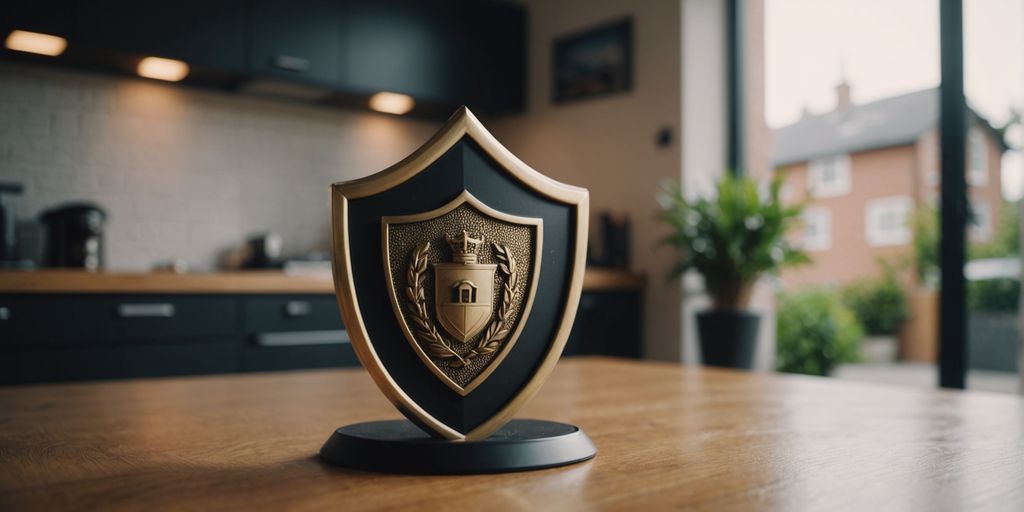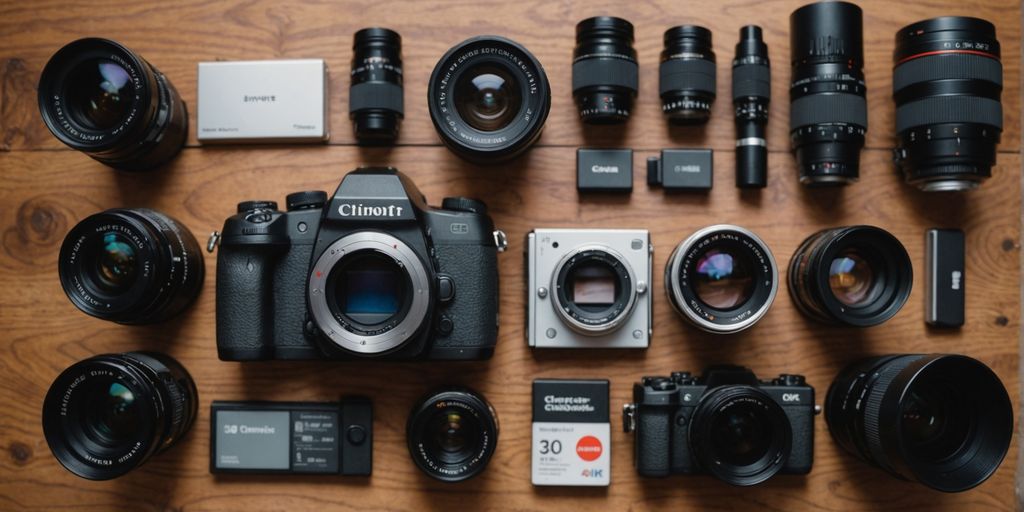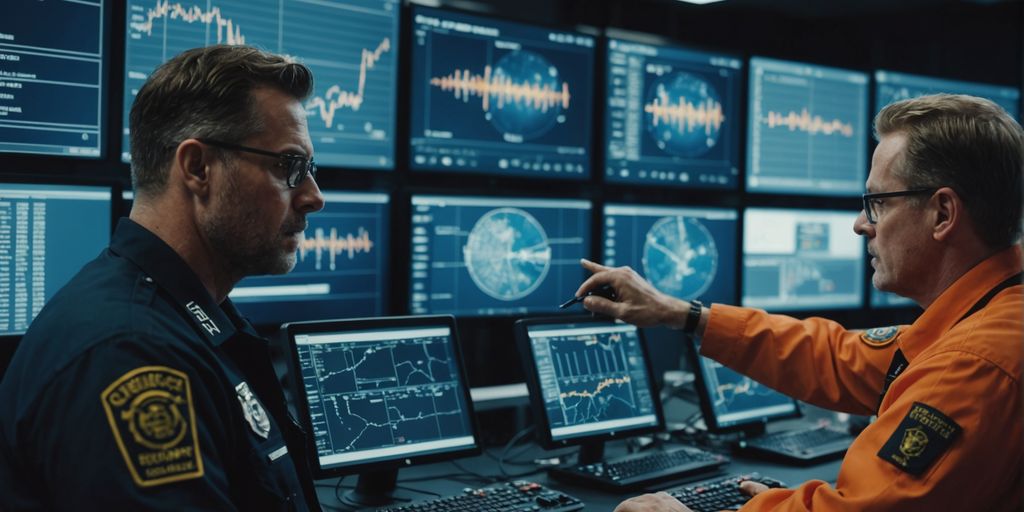Keeping your home safe is important for protecting your family and belongings. While it might seem like a lot of work, taking some simple steps can make a big difference. This article will give you the top 10 tips to make your home safer for everyone.
Key Takeaways
- Deadbolt locks are a strong way to secure your doors.
- Security cameras help you keep an eye on your home, even when you’re not there.
- Motion sensor lights can scare off intruders by lighting up when someone approaches.
- Smart doorbells let you see and talk to visitors before opening the door.
- Window locks keep your windows securely closed, making it harder for someone to break in.
1. Deadbolt Locks
Deadbolt locks are one of the top safety items for home. They are designed to withstand significant force, making them much more secure than standard doorknob locks. Deadbolts extend deeper into the door frame, providing enhanced security and peace of mind.
Benefits of Deadbolt Locks
- Enhanced Security: Deadbolts are much harder to pick or break compared to regular locks.
- Burglar Deterrent: The presence of a deadbolt can discourage burglars from attempting to break in.
- Single Action Lock: Easy to lock and unlock with a single action.
- Versatility: Suitable for various types of doors.
- Complementary Security: Can be used alongside other security measures for added protection.
Tips for Installing Deadbolt Locks
- Choose High-Quality Deadbolts: Look for deadbolts that are rated for high security. Some models, like the Fliplok High Security Door Lock, are 10x stronger than a standard deadbolt.
- Install a Deadbolt Protector: This device slides over your deadbolt to prevent it from turning, adding an extra layer of security.
- Reinforce Your Doors: Ensure your doors are sturdy and well-maintained. Replace any weak or damaged parts to maximize the effectiveness of your deadbolt.
Deadbolt locks are essential tools for a secure household. They provide a strong line of defense against intruders and are a key component of any comprehensive home security system.
2. Security Cameras
Security cameras are a crucial part of any home protection plan. They help deter burglars and provide evidence if a crime occurs. With the rise of online shopping, these cameras are more important than ever to protect against "porch pirates" who steal packages.
Modern security cameras come with a variety of features that make them easy to use and highly effective. Some of the best home security cameras of 2024 include options like the SimpliCam, Wyze Cam, Google Nest Cam, and Arlo. These cameras can be viewed from anywhere using a smartphone, tablet, or computer.
Key Features to Look For
- Motion-Triggered Recording: This feature ensures the camera only records when it detects movement, saving storage space and making it easier to review footage.
- Infrared Night Vision: Allows the camera to see in the dark, providing 24/7 surveillance.
- Two-Way Audio: Lets you communicate with anyone near the camera, which can be useful for scaring off intruders or talking to visitors.
- Wireless Connectivity: Makes installation easier and allows for flexible placement around your home.
Types of Security Cameras
- Indoor Cameras: Ideal for monitoring the inside of your home. The best indoor camera is often considered to be the Nest Cam.
- Outdoor Cameras: Built to withstand the elements and provide security for the exterior of your home. The Arlo Pro 4 Spotlight Camera is a top choice for outdoor use.
- Floodlight Cameras: Combine a security camera with a powerful light to illuminate and monitor large areas. The Eufy Floodlight Cam E340 is a great example.
Investing in a good security camera system can give you peace of mind and help protect your family and property. Whether you choose a simple, affordable option or a more advanced model, the right camera can make a big difference in your home security.
3. Motion Sensor Lights
Motion sensor lights are a great way to boost your home’s security. These lights turn on when they detect movement, which can scare off intruders who think they’ve been spotted. Motion detector lights are easy to install and very affordable, with prices starting as low as $10-$15.
Benefits of Motion Sensor Lights
- Enhanced Security: By lighting up when they sense movement, these lights can deter burglars and make your home safer.
- Energy Efficiency: They only turn on when needed, saving electricity compared to lights that stay on all night.
- Convenience: They provide light when you need it, making it easier to see when you come home at night.
Where to Install Motion Sensor Lights
- Near Doors: Placing lights near your front and back doors can help deter intruders and make it safer for you to enter and exit your home.
- Driveways and Walkways: These areas can benefit from extra lighting to help you and your visitors navigate safely.
- Dark Corners: Any dark areas around your home can be lit up to reduce hiding spots for potential intruders.
Motion sensor lights are a valuable addition to any home, offering a range of benefits including enhanced security, energy efficiency, and convenience.
4. Smart Doorbells
Smart doorbells are a great way to boost your home’s security. They let you see, hear, and talk to visitors even when you’re not at home. This means you can tell the delivery driver where to leave a package or check who’s at your door before answering it. Even if no one rings the bell, you can get notifications on your phone when motion is detected, so you always know what’s happening outside your front door.
Smart doorbells come with many features that make them a top choice for home security. Here are some of the best things you can do with a smart doorbell:
- Answer the door: See who is at your door from your smartphone.
- 24/7 monitoring: Get alerts any time of the day or night.
- Wireless options: Some smart doorbells are wireless, making them easy to install.
With smart doorbells, you can feel secure and in control of your home’s entrance. They offer many of the same benefits as home security cameras, like motion detection and video recording.
5. Window Locks
Securing your windows is a crucial step in maintaining home safety. Windows are often targeted by intruders as they can be the weakest point of entry. Ensuring that all windows have sturdy locks can significantly reduce the risk of break-ins.
Types of Window Locks
- Keyed Locks: These are very effective as they are difficult to break. They require a key to open, adding an extra layer of security.
- Sliding Window Locks: Perfect for sliding patio doors and sliding glass windows. They prevent the window from being opened more than a few inches.
- Window Bars: Extremely effective in preventing entry, even if the glass is broken.
Tips for Maintaining Window Locks
- Regularly check all window locks to ensure they are in good working condition.
- After any home repairs, verify that all windows are locked. An untrustworthy worker might leave a window unlocked for later access.
- Make it a habit to lock every window in your home daily, including garage and storm windows.
Remember, the majority of forced entry burglaries happen through the weakest point, often at the back of the house where it’s less visible. Strengthening your window locks can make a big difference in your overall home security.
6. Home Security Systems
A high-quality home security system can provide you and your family with peace of mind day and night. Security systems offer different levels of protection, so it’s essential to choose one that protects your home effectively and efficiently. You can boost your home’s safety by ensuring your system includes these components:
- Video surveillance: Keep an eye on your property with cameras that can record and stream live footage.
- Motion detectors: Detect movement and alert you to any unusual activity.
- Lights: Illuminate dark areas to deter intruders.
- Alarms: Loud sounds can scare off intruders and alert neighbors.
- Keypad panels: Control your system easily from a central location.
As technology advances, security systems offer more features to boost convenience, efficiency, and protection. Home intruders can get around basic, outdated systems, but you can outsmart them with advanced solutions such as motion detector video recorders and live monitoring services.
For the best protection, consider joining a 24/7 monitoring program. This service connects you to responsive security specialists who can assist during emergencies. Enhancing emergency response is crucial for keeping your home safe.
7. Smoke Detectors
Smoke detectors play a crucial role in keeping our homes safe from fire hazards. They are designed to detect smoke and emit a loud, piercing sound to alert us in case of a fire emergency. However, there are instances when smoke detectors can be a nuisance, such as when they go off due to burnt toast.
Importance of Smoke Detectors
Smoke detectors are essential for home safety. They help protect your family from catastrophic events and illness. Working smoke alarms save lives, and more than 2,200 people die each year because of unintentional home fires. Almost two-thirds of these fire deaths occur in homes without working smoke alarms.
Installation Tips
For the best protection, install interconnected smoke alarms in every sleeping area and living room. If one smoke alarm activates, all alarms will sound. This ensures that everyone in the house is alerted, no matter where the fire starts.
Maintenance
- Test the smoke alarms regularly to ensure they are in working order.
- Replace any batteries that are low or dead.
- Clean the alarms to remove any dust or debris that might interfere with their operation.
Installing smoke and carbon monoxide detectors in your home is one of the most important steps you can take towards keeping you and your family safe.
8. Carbon Monoxide Detectors
Carbon monoxide (CO) is a silent and deadly gas. It has no smell, color, or taste, making it hard to detect without the right tools. This is why having a carbon monoxide detector in your home is crucial.
Why You Need One
A carbon monoxide detector alerts you to any unusual build-up of CO in your home. This can happen if appliances are not properly maintained or used. When CO levels rise, the detector sounds an alarm, giving you time to get to safety.
Where to Place Them
Each floor of your home needs a separate detector. If you can only get one, place it near the sleeping areas. This ensures that you will hear the alarm if it goes off while you are asleep.
Maintenance Tips
- Test the detector monthly to make sure it works.
- Replace the batteries at least once a year.
- Follow the manufacturer’s instructions for replacing the unit, usually every 5-7 years.
Installing carbon monoxide detectors is one of the most important steps you can take to keep your family safe. Make sure they are properly placed and maintained.
9. Fire Extinguishers
Fire extinguishers are a vital part of home safety. They provide a first line of defense against small fires, helping protect your property and loved ones. Fire extinguishers play a big role in safety plans. They can stop a fire from becoming a huge problem. With a portable fire extinguisher, you can act fast.
Important Locations
The most important places to have a fire extinguisher are in areas that are more susceptible to fire. These areas are the kitchen and the garage.
Types of Fire Extinguishers
Different types of fire extinguishers are designed to fight different kinds of fires:
- Class A: For ordinary combustibles like wood and paper.
- Class B: Effective against fires involving flammable liquids such as gasoline, oil, grease, and some paints.
- Class C: For electrical fires.
Training and Maintenance
Proper training on how to use a fire extinguisher is crucial. This hands-on program teaches the operator how to use their equipment properly, but stresses the importance of personal safety and escape. Regular maintenance checks ensure that your fire extinguisher is always ready to use.
10. Safe Deposit Boxes
A safe deposit box is a secure place to store items of significant financial or sentimental value. Your safe deposit box should be home to items like important documents, property deeds, and wills. This ensures they are protected from theft, fire, and other disasters.
Limited Access
One thing to keep in mind is that you can only access your safe deposit box during the institution’s business hours. This means you need to plan your visits accordingly.
Fees
There is usually a yearly fee associated with maintaining a safe deposit box. Make sure to factor this into your budget when considering this option.
Not Disaster-Proof
Although safe deposit boxes offer a high level of security, they are not entirely disaster-proof. The contents are not insured, so it’s wise to keep this in mind when deciding what to store in them.
For an extra layer of protection, consider fireproof and waterproof safes for your most valuable items. This can be a wise investment, especially if you live in an area prone to natural disasters.
Conclusion
Keeping your home safe doesn’t have to be complicated. By following these simple tips, you can protect your family and your belongings. Remember, safety is about being prepared and taking small steps to prevent accidents and break-ins. Whether it’s locking your doors, being cautious with what you share online, or using advanced security systems, every action counts. Make your home a place where everyone feels secure and happy. Stay safe!


